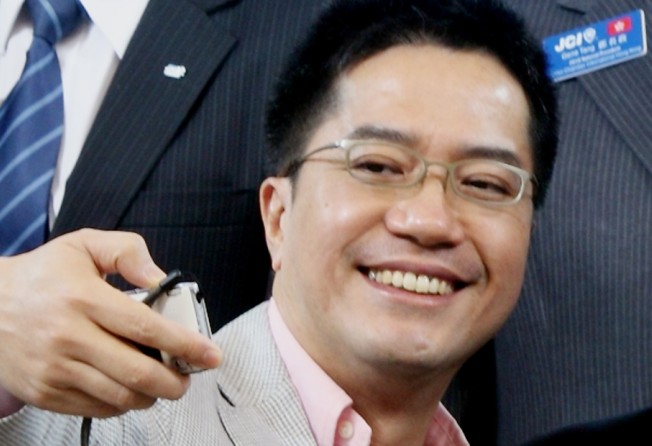Government information officers should serve the public
Albert Cheng says the Information Services Department ought to be facilitating journalists' work, not denying access as it seems to be doing

Chief Executive Leung Chun-ying told a forum this month that we shouldn't allow the Independent Commission Against Corruption to be used as a political tool. His comments were greeted by some with shock and dismay.
Leung demanded that those who had filed complaints with the ICAC against beleaguered executive councillors Franklin Lam Fan-keung and Barry Cheung Chun-yuen should apologise to the pair.
The two, embroiled in separate scandals, have since resigned from their posts.
In both cases, an ICAC investigation determined there was no case to pursue.
That being the case, we should be asking whether Leung is guilty of something similar: all signs point to the fact that the Information Services Department has become his political tool.
Michael Wong Wai-lun, the current director, took up the post in 2009. Four years on, he remains in the same job. Administrative officers customarily get transferred to a different department every three years.
Yet Wong has stayed on; perhaps he has served his master so well that he was told to continue his good work.
Despite Wong's status as a civil servant, he has made no attempt to disguise the fact that he is a fan of Leung.
Since Leung took the helm, Wong has noticeably reduced the number of formal press conferences, minimising the opportunities for reporters to question bureau secretaries and top officials.
This has helped to shield officials from media scrutiny. Furthermore, it has also cut down the number of stand-up press conferences. On the rare occasion that such a conference is held, reporters often don't get the usual quota of at least five questions.
On August 11, when Leung attended the public forum in Tin Shui Wai, his opening speech was not distributed to the press as a media release. When questioned by the media, the Information Services Department explained that there was no release because the Office of the Chief Executive had not supplied a written speech. This was not only unprecedented, it was also unreasonable.
First, recording the speeches of government officials is part of the Information Services Department's daily routine.
Second, on the day of the forum, both Wong and information officers were present. So, it's reasonable to assume that the speech would have been transcribed.
Third, Leung attended three similar public consultation forums for the policy address last December and on all occasions the department uploaded the speeches onto the government website.
A spokesman for the Office of the Chief Executive explained that community visits were not formal functions and thus there were no formal speeches to release. What a feeble excuse.
It got worse when Leung visited Kwun Tong to conduct his second community visit last Sunday. We all know that television reporters often need to do stand-up news reports on the spot. Strangely, on this occasion, information officers barred television reporters from doing this, saying they would be distracting the audience. Is this an effort to stifle press freedom?
Furthermore, a local news website, House News, which has become very popular in the past year, was turned away and not allowed by information officers to report on the event. The reason given was that it is not recognised as a proper media organisation.
Many international news organisations now have a significant online presence. The highly reputable Newsweek has even gone fully online, so does that mean the Hong Kong government does not recognise it as a proper mainstream publication?
How could the government's information services be so ignorant about this new and popular media platform? The level of ignorance explains why officers are so disconnected and hence lack a sense of reality, putting them in a passive and defensive position.
Finally, D100, the multimedia global Chinese radio station founded by me and my business partner Morris Ho Kwok-fai, has now achieved a daily audience of several hundred thousand locally and globally, in about a year. Yet, none of the press inquiries filed by D100 have been answered by government departments. The station has been blatantly cold-shouldered.
The government's ludicrous behaviour can be summed up by a popular Chinese saying: "Covering one's ears to steal a bell".
The budgeted expenditure for government information services for the financial year 2013-14 exceeds HK$400 million. Given the department's failure to perform the appropriate duties, it's safe to say that it is a waste of public resources. The money would be better used to benefit the elderly.
As for Wong, he would be better off as a spin doctor solely serving his master.
Albert Cheng King-hon is a political commentator. [email protected]